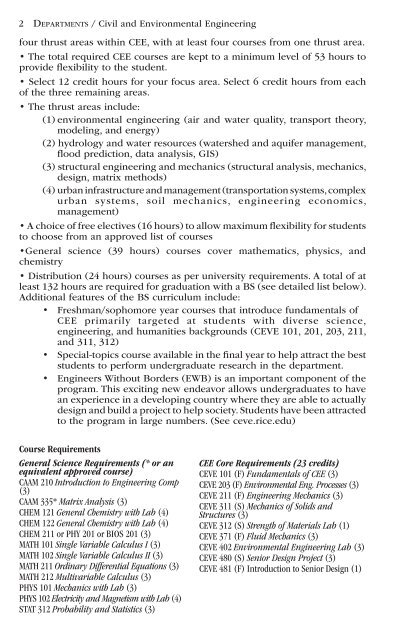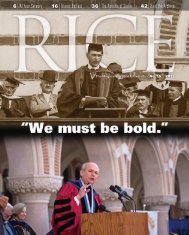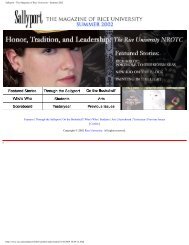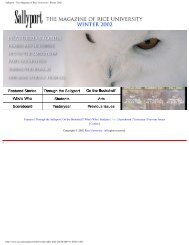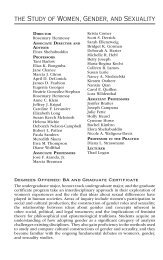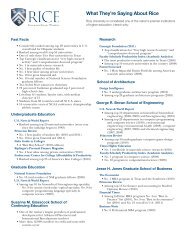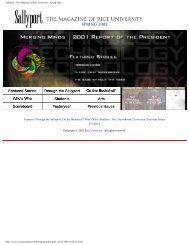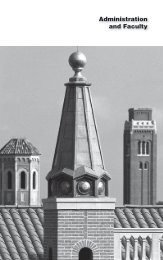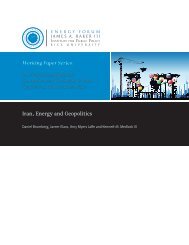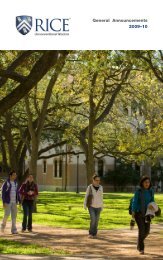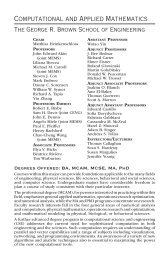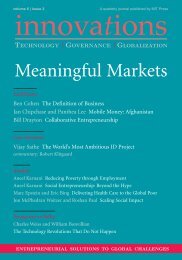- Page 1 and 2:
General Announcements 2009-10
- Page 3 and 4:
Message from the President In some
- Page 5 and 6:
Monday, October 12 (through Tuesday
- Page 7 and 8:
Deadline: Last day to file the foll
- Page 9 and 10:
Summer 2010 General Session (June 7
- Page 11 and 12:
General Information for all Student
- Page 13 and 14:
Faculty Grading Guidelines Ge n e r
- Page 15 and 16:
Ge n e r a l In f o r m a t i o n f
- Page 17 and 18:
Ge n e r a l In f o r m a t i o n f
- Page 19 and 20:
Information for Undergraduate Stude
- Page 21 and 22:
In f o r m a t i o n f o r Un d e r
- Page 23 and 24:
In f o r m a t i o n f o r Un d e r
- Page 25 and 26:
In f o r m a t i o n f o r Un d e r
- Page 27 and 28:
In f o r m a t i o n f o r Un d e r
- Page 29 and 30:
In f o r m a t i o n f o r Un d e r
- Page 31 and 32:
In f o r m a t i o n f o r Un d e r
- Page 33 and 34:
In f o r m a t i o n f o r Un d e r
- Page 35 and 36:
In f o r m a t i o n f o r Un d e r
- Page 37 and 38:
In f o r m a t i o n f o r Un d e r
- Page 39 and 40:
In f o r m a t i o n f o r Un d e r
- Page 41 and 42:
In f o r m a t i o n f o r Un d e r
- Page 43 and 44:
In f o r m a t i o n f o r Un d e r
- Page 45 and 46:
In f o r m a t i o n f o r Un d e r
- Page 47 and 48:
In f o r m a t i o n f o r Un d e r
- Page 49 and 50:
In f o r m a t i o n f o r Un d e r
- Page 51 and 52:
In f o r m a t i o n f o r Un d e r
- Page 53 and 54:
In f o r m a t i o n f o r Un d e r
- Page 55 and 56:
In f o r m a t i o n f o r Un d e r
- Page 57 and 58:
In f o r m a t i o n f o r Un d e r
- Page 59 and 60:
In f o r m a t i o n f o r Un d e r
- Page 61 and 62:
In f o r m a t i o n f o r Un d e r
- Page 63 and 64:
In f o r m a t i o n f o r Un d e r
- Page 65 and 66:
Information for Graduate Students 1
- Page 67 and 68:
In f o r m a t i o n f o r Gr a d u
- Page 69 and 70:
In f o r m a t i o n f o r Gr a d u
- Page 71 and 72:
In f o r m a t i o n f o r Gr a d u
- Page 73 and 74:
In f o r m a t i o n f o r Gr a d u
- Page 75 and 76:
Academic Regulations In f o r m a t
- Page 77 and 78:
In f o r m a t i o n f o r Gr a d u
- Page 79 and 80:
In f o r m a t i o n f o r Gr a d u
- Page 81 and 82:
In f o r m a t i o n f o r Gr a d u
- Page 83 and 84:
Tuition, Fees, and Expenses In f o
- Page 85 and 86:
In f o r m a t i o n f o r Gr a d u
- Page 87 and 88:
In f o r m a t i o n f o r Gr a d u
- Page 89 and 90:
In f o r m a t i o n f o r Gr a d u
- Page 91 and 92:
2 De p a r t m e n t s / Air Force
- Page 93 and 94:
1 Ancient Mediterranean Civilizatio
- Page 95 and 96:
Ancient Mediterranean Civilizations
- Page 97 and 98:
1 Anthropology The School of Social
- Page 99 and 100:
Anthropology 3 for the Atlantic tra
- Page 101 and 102:
1 Applied Physics Graduate Program
- Page 103 and 104:
Applied Physics Graduate Program 3
- Page 105 and 106:
2 De p a r t m e n t s / Architectu
- Page 107 and 108:
4 De p a r t m e n t s / Architectu
- Page 109 and 110:
6 De p a r t m e n t s / Architectu
- Page 111 and 112:
1 Army ROTC Pr o f e s s o r o f Mi
- Page 113 and 114: 1 Art History The School of Humanit
- Page 115 and 116: Art History 3 the student later cho
- Page 117 and 118: Art History 5 Students in the third
- Page 119 and 120: 2 De p a r t m e n t s / Asian Stud
- Page 121 and 122: 4 De p a r t m e n t s / Asian Stud
- Page 123 and 124: 1 Bioengineering George R. Brown Sc
- Page 125 and 126: Bioengineering 3 BIOE 451 Bioengine
- Page 127 and 128: Bioengineering 5 • Completion of
- Page 129 and 130: 2 De p a r t m e n t s / Bioscience
- Page 131 and 132: 4 De p a r t m e n t s / Bioscience
- Page 133 and 134: 6 De p a r t m e n t s / Bioscience
- Page 135 and 136: Business The Jesse H. Jones Graduat
- Page 137 and 138: Business 3 to determine which stude
- Page 139 and 140: Business 5 nine elective courses in
- Page 141 and 142: Business 7 a cumulative grade point
- Page 143 and 144: Business 9 matter, this will requir
- Page 145 and 146: Business 11 If student is taking a
- Page 147 and 148: Business 13 1. Prepare and submit t
- Page 149 and 150: 1 Center for the Study of Languages
- Page 151 and 152: Chemical and Biomolecular Engineeri
- Page 153 and 154: they must satisfy the following pre
- Page 155 and 156: 1 Chemistry The Wiess School of Nat
- Page 157 and 158: Chemistry 3 In-depth Chemistry Cour
- Page 159 and 160: Chemistry 5 requires at least 120 c
- Page 161 and 162: Chemistry 7 • Each course must be
- Page 163: 1 Civil and Environmental Engineeri
- Page 167 and 168: Civil and Environmental Engineering
- Page 169 and 170: Classical Studies The School of Hum
- Page 171 and 172: 1 Cognitive Sciences The School of
- Page 173 and 174: Cognitive Sciences 3 COMP 440 Artif
- Page 175 and 176: 2 De p a r t m e n t s / Computatio
- Page 177 and 178: 4 De p a r t m e n t s / Computatio
- Page 179 and 180: Computer Science The George R. Brow
- Page 181 and 182: Computer Science Core Courses Nine
- Page 183 and 184: Earth Science The Wiess School of N
- Page 185 and 186: Earth Science 3 CEVE 550 Environmen
- Page 187 and 188: Earth Science 5 Undergraduate Indep
- Page 189 and 190: 2 De p a r t m e n t s / Economics
- Page 191 and 192: 4 De p a r t m e n t s / Economics
- Page 193 and 194: 6 De p a r t m e n t s / Economics
- Page 195 and 196: 1 Education Certification Ch a i r
- Page 197 and 198: Education Certification 3 Apprentic
- Page 199 and 200: 1 Electrical and Computer Engineeri
- Page 201 and 202: Electrical and Computer Engineering
- Page 203 and 204: Electrical and Computer Engineering
- Page 205 and 206: 2 De p a r t m e n t s / Energy and
- Page 207 and 208: 2 De p a r t m e n t s / English
- Page 209 and 210: Environmental Analysis and Decision
- Page 211 and 212: Environmental Analysis and Decision
- Page 213 and 214: 2 De p a r t m e n t s / Environmen
- Page 215 and 216:
1 Financial Computation and Modelin
- Page 217 and 218:
2 De p a r t m e n t s / French Stu
- Page 219 and 220:
1 German Studies The School of Huma
- Page 221 and 222:
Global Health Technologies The Geor
- Page 223 and 224:
Global Health Technologies 3 Electi
- Page 225 and 226:
2 De p a r t m e n t s / Hispanic S
- Page 227 and 228:
2 De p a r t m e n t s / History se
- Page 229 and 230:
1 Humanities Research Center The Sc
- Page 231 and 232:
2 De p a r t m e n t s / Jewish Stu
- Page 233 and 234:
2 De p a r t m e n t s / Kinesiolog
- Page 235 and 236:
1 Leadership Rice Di r e c t o r TB
- Page 237 and 238:
2 De p a r t m e n t s / Liberal St
- Page 239 and 240:
2 De p a r t m e n t s / Lifetime P
- Page 241 and 242:
2 De p a r t m e n t s / Linguistic
- Page 243 and 244:
4 De p a r t m e n t s / Linguistic
- Page 245 and 246:
1 Managerial Studies The School of
- Page 247 and 248:
1 Mathematics The Wiess School of N
- Page 249 and 250:
Mathematics 3 To complete the advan
- Page 251 and 252:
2 De p a r t m e n t s / Mechanical
- Page 253 and 254:
4 De p a r t m e n t s / Mechanical
- Page 255 and 256:
6 De p a r t m e n t s / Mechanical
- Page 257 and 258:
2 De p a r t m e n t s / Medieval S
- Page 259 and 260:
1 Military Science Ch a i r a n d P
- Page 261 and 262:
Military Science 3 Tuition—Member
- Page 263 and 264:
2 De p a r t m e n t s / Music is s
- Page 265 and 266:
4 De p a r t m e n t s / Music Stud
- Page 267 and 268:
2 De p a r t m e n t s / Nanoscale
- Page 269 and 270:
2 De p a r t m e n t s / Naval Scie
- Page 271 and 272:
1 Philosophy The School of Humaniti
- Page 273 and 274:
Philosophy 3 For the MA in philosop
- Page 275 and 276:
2 De p a r t m e n t s / Physics an
- Page 277 and 278:
4 De p a r t m e n t s / Physics an
- Page 279 and 280:
1 Policy Studies The School of Soci
- Page 281 and 282:
Policy Studies 3 HIST 386 Recent U.
- Page 283 and 284:
1 Political Science The School of S
- Page 285 and 286:
Political Science 3 and the complet
- Page 287 and 288:
2 De p a r t m e n t s / Poverty, J
- Page 289 and 290:
2 De p a r t m e n t s / Psychology
- Page 291 and 292:
1 Religious Studies The School of H
- Page 293 and 294:
Sociology The School of Social Scie
- Page 295 and 296:
Sociology 3 Program Timeline—A fi
- Page 297 and 298:
2 De p a r t m e n t s/ Sport Manag
- Page 299 and 300:
2 De p a r t m e n t s/ Statistics
- Page 301 and 302:
2 De p a r t m e n t s / The Study
- Page 303 and 304:
4 De p a r t m e n t s / The Study
- Page 305 and 306:
6 De p a r t m e n t s / The Study
- Page 307 and 308:
2 De p a r t m e n t s/ Subsurface
- Page 309 and 310:
University Courses University cours
- Page 311 and 312:
2 De p a r t m e n t s / Visual and
- Page 313 and 314:
4 De p a r t m e n t s / Visual and
- Page 315 and 316:
6 De p a r t m e n t s / Visual and
- Page 317 and 318:
2 Bo a r d o f Tr u s t e e s Board
- Page 319 and 320:
4 Administration Emergency Medical
- Page 321 and 322:
6 Fa c u l t y Clark, Howard Charle
- Page 323 and 324:
8 Fa c u l t y Kiperman, Anita, 197
- Page 325 and 326:
10 Fa c u l t y Taylor, Julie M., 1
- Page 327 and 328:
12 Fa c u l t y Atlee, Carl W., 200
- Page 329 and 330:
14 Fa c u l t y Boles, John B., 198
- Page 331 and 332:
16 Fa c u l t y Cartwright Jr, Robe
- Page 333 and 334:
18 Fa c u l t y Cummins-Muñoz, Eli
- Page 335 and 336:
20 Fa c u l t y Dudey, Marc Peter,
- Page 337 and 338:
22 Fa c u l t y Fletcher, Katherine
- Page 339 and 340:
24 Fa c u l t y Grant, Simon, 2002.
- Page 341 and 342:
26 Fa c u l t y Hewitt, Janice, 199
- Page 343 and 344:
28 Fa c u l t y Jones, Mark P., 200
- Page 345 and 346:
30 Fa c u l t y Lamos, Colleen R.,
- Page 347 and 348:
32 Fa c u l t y Ma, Jianpeng, 2000.
- Page 349 and 350:
34 Fa c u l t y Miller, Thomas E. X
- Page 351 and 352:
36 Fa c u l t y O’Malley, Marcia
- Page 353 and 354:
38 Fa c u l t y Qian, Nanxiu, 1993.
- Page 355 and 356:
40 Fa c u l t y Sarkar, Vivek, 2007
- Page 357 and 358:
42 Fa c u l t y Singer, Adam B., 20
- Page 359 and 360:
44 Fa c u l t y Temzelides, Ted, 20
- Page 361 and 362:
46 Fa c u l t y Ward, Kerry R., 200
- Page 363 and 364:
48 Fa c u l t y Worth, David S., 20


